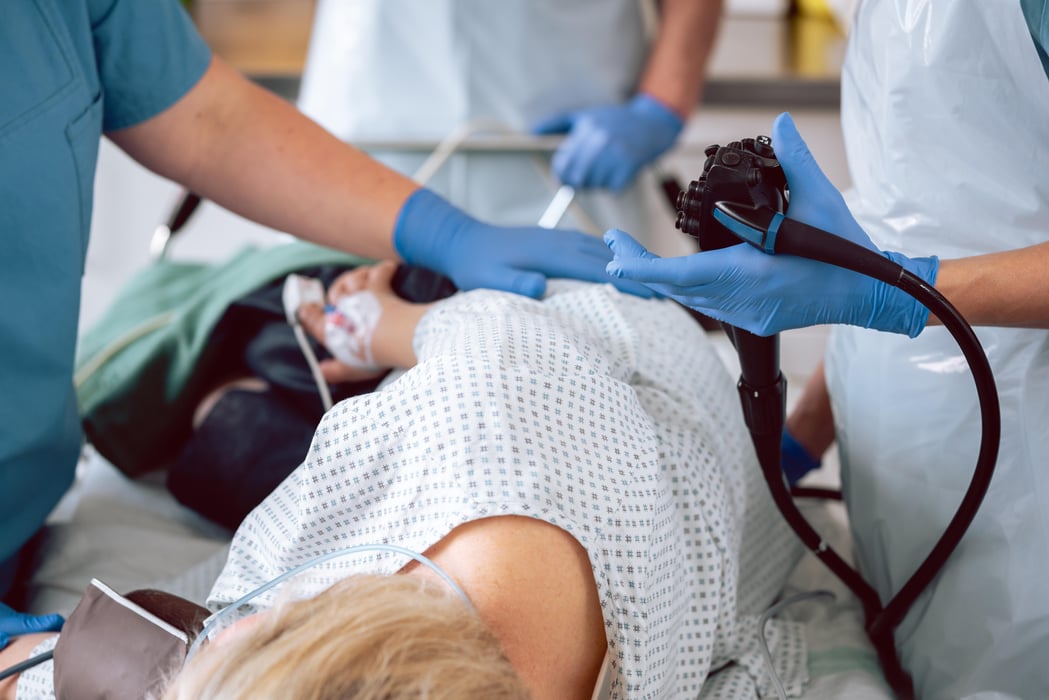AI Does Not Improve Advanced Colorectal Neoplasia Detection Rate

TUESDAY, Aug. 29, 2023 (HealthDay News) -- Computer-aided detection (CADe) during colonoscopy to identify advanced colorectal neoplasias and adenomas and the benefits and harms of CADe were explored in both a randomized trial and systematic review, both published online Aug. 28 in the Annals of Internal Medicine.
Carolina Mangas-Sanjuan, M.D., Ph.D., from the Hospital General Universitario Dr. Balmis in Spain, and colleagues examined the contribution of CADe to colonoscopic detection of advanced colorectal neoplasias as well as other lesions in a randomized controlled trial. A total of 3,213 people with a positive fecal immunochemical test were randomly assigned to colonoscopy with or without computer-aided detection. The researchers found no significant difference in the detection rate of advanced colorectal neoplasia (34.8 versus 34.6 percent for intervention versus controls) or in the mean number of advanced colorectal neoplasias detected per colonoscopy (0.54 versus 0.52, respectively) in the colonoscopy plus CADe versus colonoscopy without CADe groups. There was also no difference in the adenoma detection rate.
Cesare Hassan, M.D., Ph.D., from Humanitas University in Italy, and colleagues quantified the benefits and harms of artificial intelligence CADe across 21 randomized trials in a systematic review and meta-analysis. The analysis included 18,232 patients. The researchers found that the adenoma detection rate was higher in the CADe versus standard colonoscopy group (44.0 versus 35.9 percent; relative risk, 1.24), corresponding to a 55 percent relative reduction in the miss rate. Compared with the standard group, more nonneoplastic polyps were removed in the CADe group (0.52 versus 0.34 per colonoscopy).
"This recent evidence suggests that CADe systems do not meaningfully improve the detection of larger (≥10 mm) clinically significant polyps. This tempers enthusiasm for CADe but does not negate the clear performance benefit for detecting adenomas of all sizes," write the authors of an accompanying editorial.
The study by Mangas-Sanjuan and colleagues was funded by Medtronic.
Abstract/Full Text -- Mangas-Sanjuan (subscription or payment may be required)
Abstract/Full Text -- Hassan (subscription or payment may be required)
Editorial (subscription or payment may be required)
Related Posts
Telehealth Ups Engagement for Medicaid Patients With Mental Health Diagnosis
TUESDAY, Nov. 15, 2022 (HealthDay News) -- High telehealth availability at...
The Most Common Chemotherapy Side Effects (& How to Help Minimize Them)
As the number of cancer survivors continues to rise in the United States, thanks...
Maternal Pertussis Vaccination Linked to Lower Infection Risk in Infants
TUESDAY, Oct. 10, 2023 (HealthDay News) -- Maternal pertussis vaccination is...
La EPA limitará drásticamente la producción de un refrigerante en una nueva norma ambiental
JUEVES, 23 de septiembre de 2021 (HealthDay News) -- En una medida para combatir...
